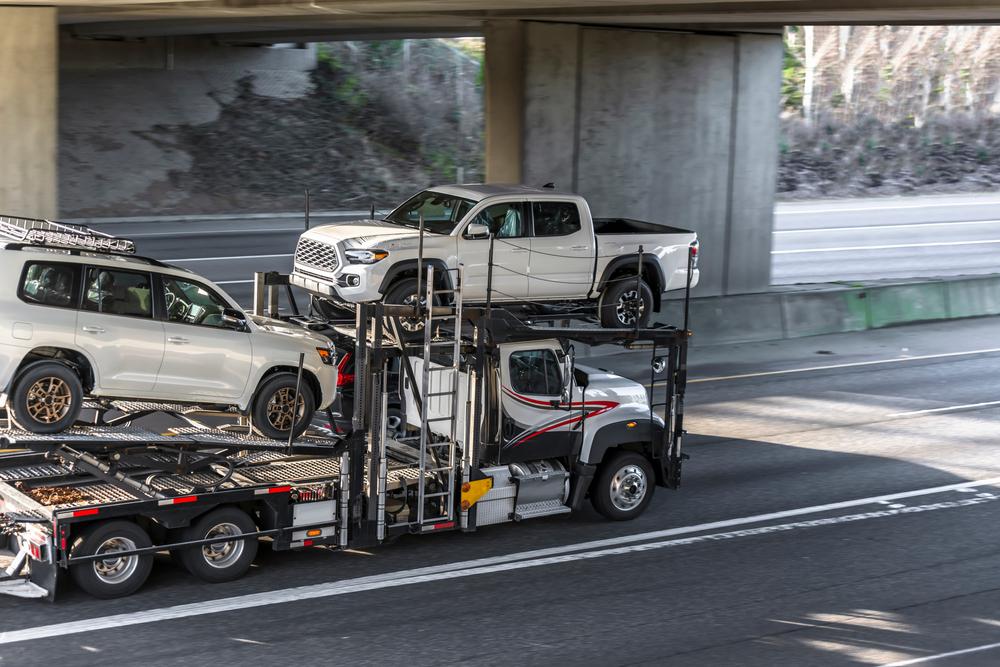
When it comes to sending your vehicle, one common question arises: does the size or weight of the vehicle impact the shipping cost? The simple answer is, yes, it does. Shipping companies take into account both the size and weight of vehicles when calculating shipping costs. This is because larger and heavier vehicles require more resources to haul. They take up more space on a carrier, which could otherwise be used to haul additional vehicles. Moreover, heavier cars add to the fuel consumption of the transport carrier, further increasing the overall delivery cost.
The basic principle behind car shipping costs is straightforward: the bigger and heavier your car, the more you can expect to pay. For example, shipping a compact car will generally be less expensive than shipping a large SUV or a heavy truck. This is because a compact car uses less space and adds less weight to the transport carrier, making it more cost-effective for the shipping company.
Additionally, the weight of your vehicle can directly impact the delivery method used. Heavier cars may require specialized handling and equipment, further influencing the auto transport costs. Vehicle owners need to understand these factors as they directly relate to the final cost of shipping their car. Whether you're moving across the country or sending a car you've just purchased, knowing how size and weight affect delivery costs can help you plan and budget effectively.

Factors Influencing Shipping Costs
Several factors play into the calculation of shipping costs, and understanding these can help you better anticipate the cost of auto transport. Beyond the direct impact of vehicle size and weight, other considerations also influence the overall shipping cost.
- Size Specifications and Their Impact: Auto transport costs vary significantly based on the size of your vehicle. Compact cars, mid-size sedans, SUVs, and large trucks each fall into different categories, with larger vehicles generally costing more to ship due to their space requirements on a carrier.
- Weight Considerations: The weight of your vehicle is another critical factor. It's not just about the physical space it occupies; heavier vehicles increase the fuel consumption of the carrier, which, in turn, raises the cost of shipping. The shipping company must account for these additional costs when calculating your quote.
- Type of Transport Service: The choice between open and enclosed carrier services also affects the delivery cost. Enclosed transport offers more protection for your car but comes at a higher price point. The size and weight of your vehicle can influence which type of service is more suitable or cost-effective for your needs.
These factors are all considered by the shipping company when providing a quote for car shipping. It's the combination of these elements that determines the final cost, highlighting the importance of understanding how each aspect contributes to the overall expense of hauling your vehicle.
Calculating Delivery Charges
Understanding how carriers calculate shipping costs is essential for anyone looking to ship their vehicle. While the specific formula may vary from one shipping company to another, the basics remain consistent: costs are typically based on the size and weight of the vehicle, the type of carrier service selected, and the distance of the transport.
- How Carriers Calculate Costs: Hauling companies start with a base rate for car transport and then adjust this rate based on factors such as the vehicle's size, weight, and the distance it needs to be shipped. For instance, shipping a lightweight compact car over a short distance will cost significantly less than hauling a heavy SUV across the country.
- Examples of Shipping Costs for Different Vehicles: To give you an idea, hauling a compact car from New York to Florida might cost around $600, whereas hauling a large SUV on the same route could cost upwards of $800 or more. These examples highlight how car size and weight affect shipping costs directly.
- Additional Fees and Costs: Be aware that additional fees may apply depending on your specific situation. Oversized vehicles might incur extra charges due to the special handling and equipment required. Moreover, if your car is particularly heavy, it might surpass the standard weight limit, leading to additional weight surcharges.
Calculating auto transport costs involves considering these various factors to get a comprehensive understanding of the overall delivery cost. By being aware of how each element affects the final price, you can better prepare and budget for the cost of hauling your vehicle.
Tips for Reducing Hauling Prices
Shipping your vehicle doesn't have to break the bank. There are several strategies you can employ to reduce auto transport costs, ensuring you get the best deal possible without compromising on service quality.
- Choosing the Right Service: The type of carrier service you choose can significantly affect the cost. For example, while enclosed transport offers added protection against the elements, it's more expensive than open transport. If you're hauling a standard vehicle, consider opting for open transport to save on costs. Enclosed carriers might be better reserved for classic or luxury cars that require extra care.
- Preparation Tips for Shipping: Properly preparing your car can also help reduce costs. By emptying the fuel tank to a quarter full, you lower the overall weight of your vehicle, which can decrease fuel consumption for the carrier and, in turn, lower your delivery quote. Removing personal items and any aftermarket additions that increase size and weight can also lead to savings.
- Seasonal and Geographical Considerations: Delivery costs can fluctuate based on the time of year and your destination. Avoiding peak moving seasons and being flexible with your hauling dates can lead to lower quotes. Additionally, shipping to and from major metropolitan areas might be cheaper due to the higher volume of shipments, reducing vehicle delivery costs.
By considering these factors and making informed choices, you can effectively reduce the cost of shipping cars, making the process more affordable and straightforward.

Conclusion
The size and weight of your vehicle play significant roles in determining the shipping cost. Heavier cars and those with larger dimensions generally incur higher delivery costs due to increased fuel consumption and the need for more space on the carrier. However, by understanding the factors that influence delivery costs and employing strategies to reduce auto transport costs, you can make shipping your vehicle both efficient and economical. Remember, preparation and choosing the right carrier service for your needs are key to managing and reducing the overall expense.
Ready to ship your car with confidence? Contact us at A1 A-T for a personalized quote that considers your vehicle's size and weight, and let us help you navigate the best options for your auto transport needs. Start your journey to affordable and reliable car shipping today.






 Share on Facebook
Share on Facebook Share on LinkedIn
Share on LinkedIn Share on Twitter
Share on Twitter




 Google
Google  Instagram
Instagram  Trustpilot
Trustpilot 



